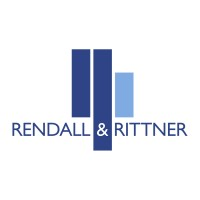The Role Of A Resident Management Company In Property Oversight
Effective property management is essential to maintaining the value, safety, and appeal of residential developments. In the UK, a Resident Management Company plays a pivotal role in overseeing communal areas, facilities, and financial responsibilities on behalf of residents. Whether dealing with maintenance issues, service charges, or long-term planning, a professional management approach ensures smooth operations and harmonious living.
What is a Resident Management Company?
A Resident Management Company (RMC) is a legal entity typically formed by the residents of a building or estate. Its primary purpose is to take responsibility for the management and maintenance of the property, including shared spaces such as hallways, gardens, lifts, and parking areas. The company is usually owned by leaseholders, giving residents a direct say in how their property is managed.
Some key responsibilities of a Resident Management Company include:
- Maintenance of Communal Areas – ensuring cleanliness, safety, and regular upkeep of shared spaces.
- Financial Management – budgeting, collecting service charges, and planning for long-term repairs or upgrades.
- Health and Safety Compliance – conducting risk assessments, fire safety checks, and ensuring adherence to building regulations.
- Resident Communication – acting as a central point for queries, concerns, or disputes.
By forming a Resident Management Company, residents can exercise control over management decisions while benefiting from professional guidance and structured operations.
Understanding RTM Property Management
Another approach to property management is through RTM Property Management, which refers to Right to Manage (RTM) companies. These are statutory bodies established under UK law, allowing leaseholders to take control of the management of their building without needing the freeholder’s consent.
RTM Property Management companies handle similar responsibilities to a traditional Resident Management Company, such as:
- Arranging repairs and maintenance for communal areas.
- Managing service charges and maintaining transparent financial records.
- Ensuring compliance with health and safety regulations.
- Hiring professional contractors and overseeing day-to-day operations.
The advantage of an RTM structure is that it empowers residents to manage their property collectively, often leading to improved service quality and greater accountability.
Residents Management Company vs RTM Property Management
While both structures aim to manage residential properties effectively, there are subtle differences between a Residents Management Company and RTM Property Management.
A Residents Management Company is typically formed voluntarily by residents and can manage multiple blocks or estates. It allows residents to own shares in the company and have voting rights on management decisions.
An RTM Property Management company is established under statutory law, providing leaseholders with the legal right to take over management from the freeholder, usually for a single building.
Both models emphasize transparency, resident involvement, and professional oversight, ensuring that property management meets high standards and legal obligations.
Benefits of Professional Management
Engaging professional management services, whether through a Resident Management Company or an RTM company, provides numerous benefits:
- Improved Property Maintenance – regular inspections, preventative maintenance, and timely repairs help maintain the property’s value.
- Transparent Financial Management – residents can track budgets, service charges, and expenditure.
- Legal Compliance – professional management ensures adherence to building regulations, fire safety laws, and landlord-tenant legislation.
- Resident Satisfaction – prompt handling of complaints, clear communication, and fair management practices foster a positive community environment.
- Long-Term Planning – professional managers help with planning major works and reserve funds for future maintenance projects.
Conclusion
For residential buildings and estates in the UK, structured management is crucial for maintaining property value, resident satisfaction, and legal compliance. A Resident Management Company or RTM Property Management company provides residents with professional oversight, financial transparency, and operational support. By empowering residents to take an active role in property management, these models ensure that both day-to-day operations and long-term planning are handled efficiently.
Whether forming a Residents Management Company or engaging RTM Property Management services, professional management is a strategic investment that safeguards both the property and the interests of its residents.
